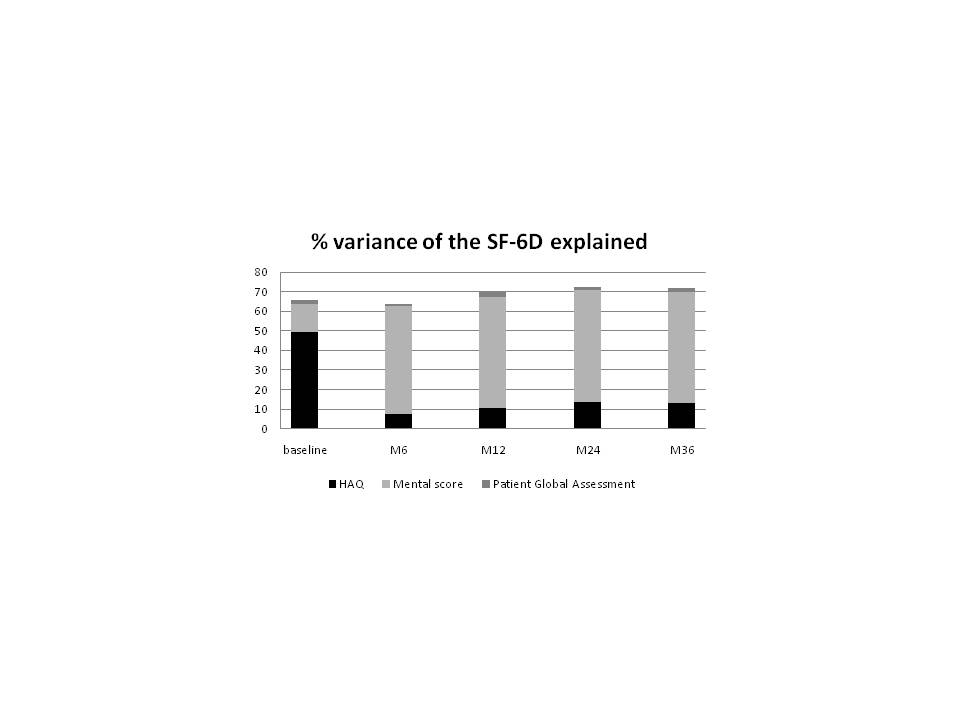Session Information
Session Type: Abstract Submissions (ACR)
Background/Purpose: There is growing emphasis on the cost-effectiveness of treating rheumatoid arthritis. The SF-6D, derived from the SF36, is an indirect utility measure widely used to calculate quality-adjusted life-years in order to assess health benefits. Few trials directly record the health utility measures (or the SF36), needed for economic analyses. Consequently linear regression methods have been used to transform Health Assessment Questionnaire (HAQ) scores into utility measures.
Objective: 1) To assess which variables are associated with the SF-6D in early arthritis over 3 years
2) To check if these associations are stable over 3 years
Methods: – Patients: Between 2002 and 2005, the ESPOIR cohort enrolled 813 patients with recent arthritis in at least 2 joints with 6 weeks to 6 months disease duration.
– Data available: SF-6D utility measures were longitudinally assessed in 813 patients with EA (at baseline, 6 months, 1, 2 and 3 years). Clinical and biological variables and X-rays were also recorded.
– Analysis: The determinants of SF-6D-derived utility values at each time-point over 3 years were assessed by multivariate linear regressions to analyze which specific aspects of early arthritis were independently associated with the SF-6D.
Results: At baseline, higher HAQ, patient global evaluation, pain, fatigue, and lower mental status were significantly associated with lower SF-6D. HAQ and AIMS2-SF-mental scores explained 49 and 14% of the variance respectively. At 6 months, 1, 2 and 3 years, higher HAQ, patient global evaluation, fatigue, age and lower mental status were significantly associated with lower SF-6D. HAQ and AIMS2-SF-mental scores explained 7 to 13% and 55 to 57% of the variance respectively (figure).
Conclusion: The determinants of the SF-6D varied over 3 years in EA patients. At baseline, the SF-6D was essentially determined by function whereas after 6 months, the SF-6D was essentially determined by mental status. Cost-effectiveness models should not use utility values derived from HAQ.
Disclosure:
C. Gaujoux-Viala,
None;
B. Fautrel,
None;
K. Hosseini,
None;
F. Guillemin,
None;
R. M. Flipo,
None;
A. C. Rat,
None.
« Back to 2012 ACR/ARHP Annual Meeting
ACR Meeting Abstracts - https://acrabstracts.org/abstract/variability-of-the-sf-6d-determinants-over-time-in-early-arthritisresults-from-the-espoir-cohort/

